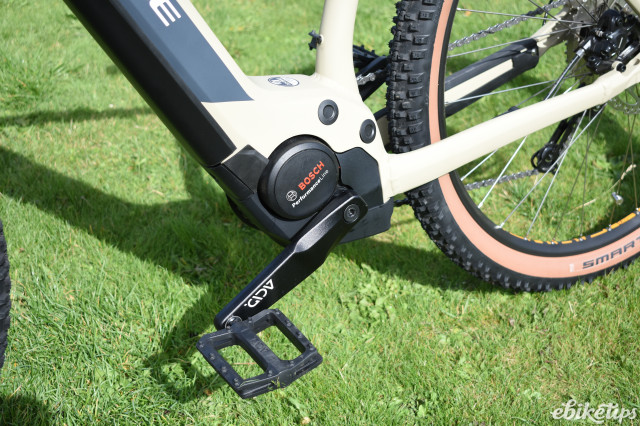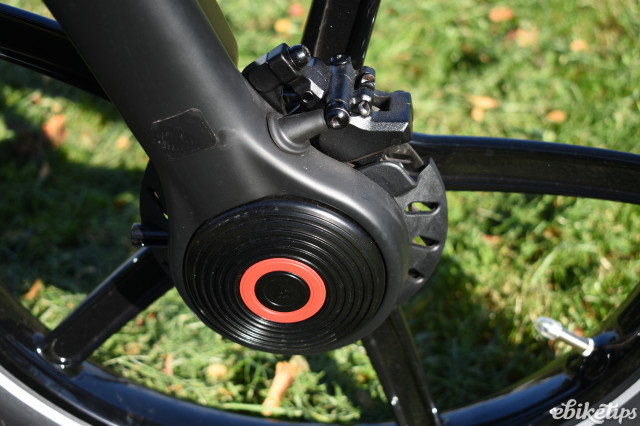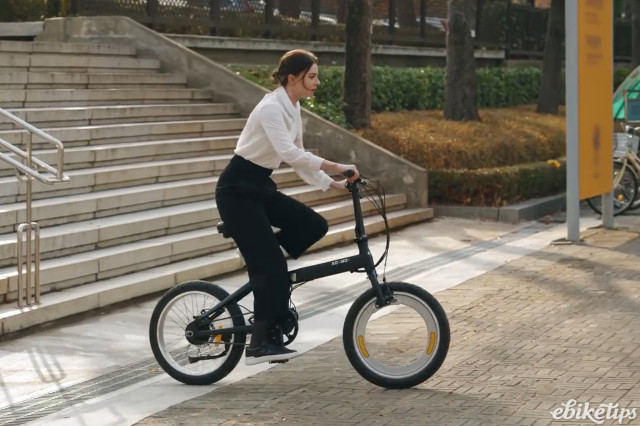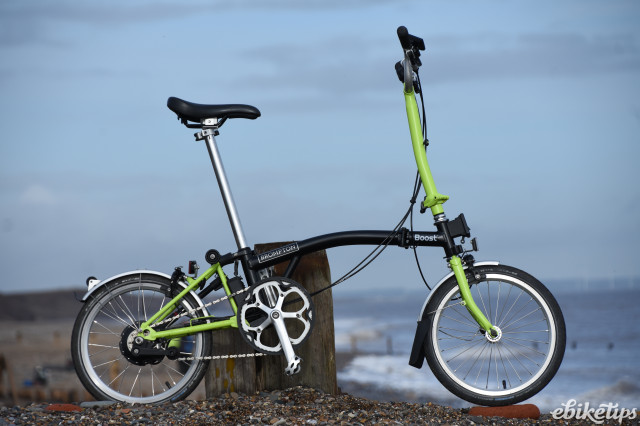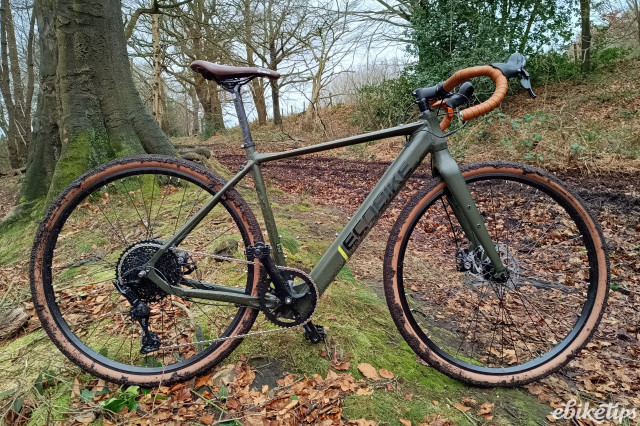By UK law all e-bike motors are limited to 250 watts of power and a top speed 15.5mph - yet e-bikes feature a massive range of motor types and brands within these narrow legal parameters. Here we try and pick out the best electric bike motors for different styles of riding and for different budgets.
The legalities mentioned above hide tremendous differences: how well different motors climb steep hills, how quickly they accelerate and how smoothly the power is delivered - not to mention the large effect motor choice can have on the overall price of the e-bike.
It's not just about the motor however. E-bike motor systems incorporate a power delivery system using sensors and control electronics and motor manufacturers usually provide these tailor-made to work with their particular motor. A good motor system will deliver power smoothly and this can be an area where there is significant difference - especially at the budget end of the market.
The main purchasing decision when it comes to electric bike motors is mid-drive (providing power through the pedal cranks) or hub motor (providing power through the front or rear wheel). We look at this in more detail below, but as a generalisation, mid-drives are better at climbing in all gears but heavier and pricier, whilst hub motor models cost less and are lighter than mid-drives.
Best electric bike motors
- Best all-round mid-drives - Shimano Steps E6100 and Bosch Performance Line
- Best all-round hub motor - Volt Spintech
- Best e-MTB mid-drive - Brose S Mag
- Best e-cargo bike motor - Bosch Cargo Line
- Best lightweight mid-drive - Specialized SL 1.1 - as used on the Vado, Como, Creo, Kenovo and Levo SL ranges
- Best heavy duty hub motor - Bafang fat bike / cargo rear hub
- Best lightweight hub motor - Gocycle front hub motor
- Best budget motor - MiVice M070 / Bafang G310 rear hub motors
- Best own brand motor - Neoassist
- Best 'smart' motor - Zehus Mark 2
Shimano Steps E6100 and Bosch Performance Line (Best all-round mid-drives)
Although released back in 2018, the Shimano Steps E6100 is still found on plenty of city and hybrid e-bikes. Despite the city tag, it's a lively performer and it's worth revisiting our findings when we tried it on the Ridgeback Advance.
Despite the relatively modest torque rating of 60Nm (higher performing motors have significantly higher ratings), it clearly rewarded effort up the hills with plenty of motor assistance. The torque sensing is great, responding well to heavy pressure and not so much to light pressure and high cadence as some other systems do.
The max size Shimano battery it can be used with is 630Wh (though the E6100 can also be found in use with Shimano-authorised 3rd party batteries like Dafron so bigger options may be available).
It's hard to pick a winner between the E6100 and Bosch's Performance Line mid-motor which we tried on the Cube Reaction Hybrid Performance. Both weigh around 2.9kg and whilst the E6100 is arguably livelier and slightly more efficient, the Performance Line has more electronic tricks up its sleeve, as it is now compatible with Bosch's Smart System which offers ever more smartphone connected features as well as the potential to pair it with Bosch's own new 700Wh battery.
Volt SpinTech - Best all-round hub motor
We've tried this rear hub motor on both Volt's single-speed London and their multi-geared Alpine. In both cases we loved its hill climbing ability and the smooth and efficient power delivery it offers. This means better range than many powerful hub motors as the assist is meted out precisely in tune with your pedal strokes.
Whilst the system is based on a Bafang motor - a ubiquitous name when it comes to hub motors - Volt's SpinTech system slightly unusually pairs it with a torque sensor rather than the more usual movement sensor and, similarly unusually, you get a throttle control which is great if you ride in lower power levels but want a sudden burst of power. Volt say they teamed up with fellow e-bike manufacturers Blix and Eco Ride to form 'a unique and exciting partnership to deliver a revolutionary technology.' Revolutionary might be overstating it, but it gets our vote as the best hub motor system out there.
Brose S Mag - best e-MTB mid-drive
There are some great e-MTB motors out there. Both the Shimano EP8 (as featured in this Vitus E-Sommet VRX review) and the Bosch Performance Line CX (as featured in this Cube Stereo Hybrid review) are punchy motors with tons of climbing power - which is what e-MTBs are really all about. However, the Brose S Mag (Mag being short for lightweight magnesium casing) just trumps them in raw power terms. At 90Nm and up to 410% assistance, it's certainly one of the most powerful motors out there.
Whilst we don't have a recent review of the Brose S Mag, you can get a taster of where it is coming from with the slightly modified version of its predecessor motor that was used by Specialized in the Kenovo Expert 6Fattie.
Bosch Cargo Line - best e-cargo bike motor
The Bosch Cargo Line motor is the most widely-used motor at the quality end of the e-cargo bike market. Whilst the headline stats give it similar power to other top end mid-drives, crucially it is tuned to give plenty of support whilst setting off - important with heavy loads on board as you need to pick up speed quickly to get the load balanced.
We loved its powerful workhorse ability on the hugely load-capable Tern GSD S10 and also whilst towing the incredible Carla Cargo trailer.
Specialized SL 1.1 - best lightweight mid-drive
This is a real growth area at the moment with the likes of the Fazua 60 and TQ-HPR50 systems being launched recently (for example on the Scott Lumen) and boasting impressively low motor weights of less than 2kg. If you don't need the full-on power of heavier mid-drives and value being able to pedal the bike without power and to get the most range out of your battery then a light mid-drive could be for you.
As a tried and tested option, our pick in this category is the Specialized SL 1.1 mid-drive which has a proven track record over several years. Our review of the Specialized Turbo Levo SL Comp summarised its performance thus: "The motor might be less powerful than most, but it also has far less mass to push, it's smooth and the battery lasts really well."
Bafang fat bike/cargo rear hub - best heavy duty hub motor
Heavy duty hub motors are a good choice for bigger, heavier bikes if you don't want to splash the cash on one of the most powerful mid-drives such as Bosch's Performance Line CX or Cargo Line. They may may not be as smoothly performing or as efficient with your battery capacity as a top end mid-drive but the best ones certainly offer plenty of power.
We were impressed with the Bafang model used on the Rad Power Radrunner and its 'almost brutal' acceleration and, whilst not branded as Bafang, the rear hub motor used by the Mycle Cargo looks very similar and performed equally strongly.
Gocycle front hub motor - best lightweight hub motor
This motor pretty much selected itself. Gocycle's own design of front hub motor was impressive enough in its original form but was revamped last year and we were even more impressed with its hill climbing power and traction control feature when we reviewed the Gocycle G4.
We found that e-bike to be one of most fun we've ever ridden in large part because it feels fast as soon as you step on the pedals. The Boost button - a small red button on the inside of the left hand grip which gives full motor power instantly - only adds to the dramatic effect. The Gocycle sailed up any hill put in front of it, including our short but steep double-digit-gradient bike path test climb, where it compared favourably to the times posted by powerful crank motor e-bikes.
Also a notably efficient and very lightweight performer - though lacking the same power of the Gocycle - is the Ebikemotion X35, as reviewed most recently on the Raleigh Trace.
MiVice M070 and Bafang G310 - best budget motors
The rather curiously named MiVice M070 rear hub motor featured on two Tenways e-bikes we've reviewed: the sporty hybrid CGO600 and the smooth city bike the CGO800S. In both cases we loved the smooth torque-sensing power, discreet non-e-bike like appearance and light 1.5kg weight. (The CGO600 in particular is decent value at £1,499.)
Both Tenways bikes are single-speed belt drives, but if you fancy more gears the lively and lightweight Bafang G310 is a great option and combines great hill climbing for such a small motor with near silent running. It's very likely in use on many e-bikes though often not branded as a Bafang. One e-bike that definiteley uses it is the lightweight Velosta e-cargo bike that will be reviewed on ebiketips fairly shortly - currently selling at £1,689, it's certainly one of the cheaper e-cargo options out there.
Neoassist - best own brand motor
Whilst Bosch, Shimano, Yamaha and Brose rule the mid-drive roost (in the UK at least), there are a number of Asian produced mid-drives starting to appear. The most impressive of these we have tried appeared on the Neomouv Adonis in the form of their Neoassist mid-drive.
It's quiet, very powerful and also proved very efficient. It also pushes the top assisted speed to the limit, cruising up our steady hill climb test without any dramas whatsoever with the speedo showing 16.5mph - the point at which power starts to drop off - on all but the steepest sections. That resulted in a record time by around five seconds - and we have put a lot of e-bikes through this test.
Note that depending on how liberal your interpretation of the 15.5mph speed cut-out law is, e-bikes with a top assisted speed of up to 17mph may in fact be legal. There's a bit more on this in our Neomouv Adonis review.
Zehus Mark 2 - best 'smart' motor
The Zehus system contains everything you need in one large shiny rear silver hub. It has its shortcomings - namely a small battery that is not removable - but the latest perfromance-upgraded version features extra torque making it a much better hill climber than predecessors.
It's a pricey option but has the convenience of requiring no cable runs whatsoever and being pretty lightweight (circa 3kg) for a complete motor system. This makes it suitable for folders like the Vello +. In our test we particularly liked the 'smart' aspects of the system which allow the bike to alter regenerative braking and power assist levels automatically according to gradient (it features an inbuilt gradient sensor). This all helped to achieve an impressive 20 mile plus range from the small 173Wh battery.
How to choose the best e-bike motor for you
Mid drive or hub drive?
As you will have read above, both hub motors and mid-drives can be great hill-climbers, but mid-drives tend to be just that bit better as the motor power is applied more evenly no matter what your speed or what gear you are in or exactly what slope you are on. Hub motors tend to excel at either going fast or hill climbing but not both. This is because the motor is powering the wheel directly and the wheel has a wider range of speed than the cranks. (We expand on this a bit in this hub v mid motor article.)
If that's a bit technical don't worry. Just remember it's hard to go far wrong with mid-drives from the 'big four' (Bosch, Brose, Shimano and Yamaha). Hub motor performance can vary a bit more than mid-drives, but there are lots of cost-effective options out there and all the hub motors we've listed above should give a good quality ride.
How much torque do I need?
As motor power is legally limited to 250W motor manufacturers have started using torque ratings to differentiate between motors. Bosch's family of motors, for example, range from ratings of 40Nm to 85Nm. Hub motors tend to have a similar range but start a bit lower, at about 30Nm.
You may see motors rated higher than 250W. While that may mean they are illegally powerful, if it is merely the 'peak' rating then this isn't necessarily the case. (The 250W limit refers to 'continuous' rather than peak power.) You will need to check with the retailer if it's not clear.
Whilst a useful guide to overall climbing power and acceleration up to the legal maximum of 15.5mph, there is no substitute for test riding an e-bike up a steep hill to experience just how much power it feels to have. We have often found that some lowly rated motors are surprisingly effective hill climbers,whilst some motors with large Nm ratings can feel surprisingly sluggish.
Is e-bike motor weight important?
If you really want a very lightweight e-bike then yes. The lightest motor systems can be 2-3kg lighter than the heaviest. In fact the difference can be even greater if you're comparing a model with a huge battery to one with minimal capacity.
Do bear in mind that less weight usually means less power though, even if some small motors can still be great hill climbers (witness Gocycle above). Weight might be extra important on a folding e-bike like the Gocycle, where picking the bike up is extra important. Similarly, if you want a racy e-bike that rides well without motor power, it's generally true that the lighter the motor the better.
Small hub motors start at about 1.5kg whilst mid-drives tend to be around double that.
Are some motors more reliable than others?
We have actually had very few problems with motors whilst testing e-bikes - and modern e-bikes are so much better made than early models that problems are much rarer than they used to be (though note we tend to avoid bargain basement type models).
Our test rides are based on several weeks' riding, but our experience is that quality motors have shown few issues over the long term too. One of the best guides to overall e-bike quality is the length of time and detail offered by the guaranteee/warranty and crucially if it covers the battery too. Batteries degrade very gradually by nature - much more so than motors.


